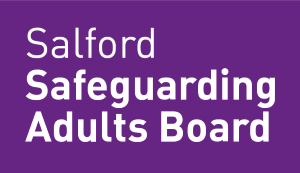Mate Crime
Mate Crime is a form of hate crime and can be a very serious form of abuse.
Mate Crime is defined as the exploitation, abuse or theft from any person at risk from those they consider to be their friends. Those that commit such abuse or theft are often referred to as ‘fake friends’.
People with disabilities, particularly those with learning disabilities, mental health problems, substance misuse and older people are often the targets of this type of crime. In some cases victims of mate crime have been badly harmed or even killed.
There are different forms of mate crime, for example:
- Theft/financial abuse - the abuser might demand or ask to be lent money and then not pay it back or the perpetrator might misuse the property of the adult.
- Cuckooing - the abuser might take over the person's home and visit or stay there, despite the person not wanting them to.
- Physical assault/abuse - the abuser might hurt or injure the adult.
- Harassment or emotional abuse - the abuser might manipulate, mislead and make the person feel worthless.
- Sexual assault/abuse - the abuser might harm or take advantage of the person sexually.
Often, these different types of abuse don't happen in isolation - abusers may subject their victims to multiple forms of abuse.
Learning disability and mate crime
People with learning disabilities may be more vulnerable to mate crimes. They may not have had the usual opportunities to become ‘streetwise’ when growing up or may be less able to recognise that they are being taken advantage of.
Features of mate crime
Mate crimes are likely to happen in private, often in the victim’s own accommodation. They can also happen via social media, where victims are financially or sexually exploited after being befriended online.
Identifying mate crime
Indicators of mate crime can be similar to other forms of abuse. Potential signs include:
- bills not being paid, a sudden lack of money, losing possessions, suddenly changing their will
- may have more money than usual, expensive gifts etc.
- changes in routine, behaviour, appearance, finances or household (new people visiting or staying over, lots of new ‘friends’, lots more noise or rubbish than normal)
- cutting themselves off from established networks of friends/family and support, missing weekly activities
- secretive internet or mobile phone use.
More information
Advice and information on what Mate Crime is and how social workers can identify it from the Community Care website www.communitycare.co.uk
The ‘Friend or Fake’ booklet, an easy-read booklet about Hate Crime and Mate Crime produced by the Association for Real Change (ARC).
Safety Net helps local agencies develop systems to tackle Mate Crime – for more information visit the Arc Safety website
Crown Prosecution Service (CPS)
For prosecution guidance about Disability Hate Crime and other crimes against disabled people, visit the CPS website at www.cps.gov.uk/disability-hate-crime-and-other-crimes-against-disabled-people-prosecution-guidance
Nottingham Community Housing have produced this video to raise awareness of Hate Crime and ‘Mate Crime’
Latest news
Details of all the latest news from Salford Safeguarding Adults Board.
